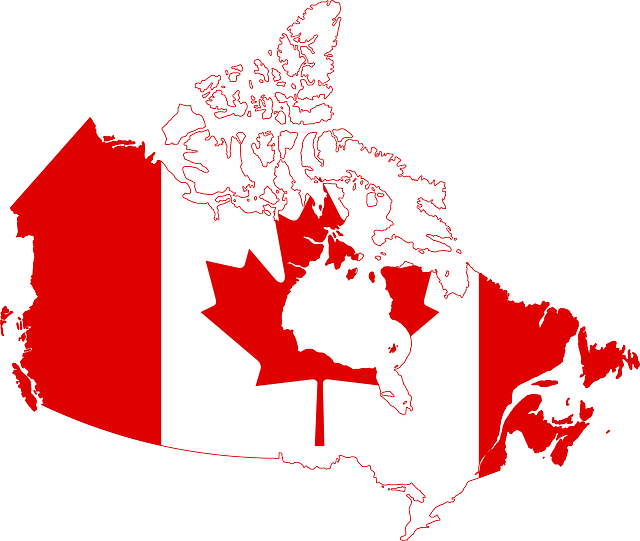
We all have something of value to pass on to our loved ones; that is what estate planning does and why you should plan for your estate as soon as possible. Our estates are comprised of our assets, items and all of the things that we all own. This can include anything and everything from investments, homes, cars, savings accounts, personal possessions, furniture, life insurance, etc. All of these things add up to create our personal estate(s). It’s very important to plan on how to manage all of these assets, and how they’ll be distributed when you pass away. This is where estate planning comes into play.
No matter which province you live in, whether it be Ontario, Quebec, British Columbia, Manitoba, Alberta, New Brunswick, Saskatchewan, or Newfoundland, estate planning is incredibly important. Estate planning can be used as a way to not only manage your assets, but also to ensure that your assets go to the right people.
Key Components of Estate Planning
What is Estate Planning?
Estate planning allows you to manage your assets and estate before you pass away. If you die or become incapacitated, the person in charge of your estate, or in the event of working with an estate planning professional (if you are working with one) will have all the necessary directions and guidelines on what to do and how to complete the process.
Estate planning consists of more than simply preparing a Last Will because aside from choosing how your wealth is distributed, estate planning can also settle your debts and estate taxes. Estate planning also covers other things: the guardianship of your pets and minor children, for example. Following an estate planning checklist will help streamline the process while also helping you save time and ensure everything is managed appropriately.
How Important is Estate Planning?
Having an estate plan is of the utmost importance! If you’re looking to safeguard the future of your family, you will want to that your wealth is distributed properly. An estate plan offers control over asset distribution. It also protects your heirs by ensuring that their future(s) are taken care of.
Without proper estate planning, it can be hard to reduce the financial burdens incurred on your family when you pass away. It can also be hard to ensure that your money and wealth are distributed as per your final wishes. Thankfully, estate planning helps you gives you complete control over how you allocate your wealth in the event you pass away.
Key Components of Estate Planning
Every estate plan is unique; however, some components tend to be a part of each plan, and here are the main ones.
Wills and trusts
A Will is a legal document that allows you to distribute your assets once you pass away. Wills are also important if you want any specific funeral arrangements, a specific guardian for your kids, and so on. You can also opt for a trust, which is a written document that ensures that the property be held by one (the “trustee”) for the benefit of another (the “beneficiary.”)
Power of attorney
A Power of Attorney document allows someone else the authority over your financial affairs and property. This document allows you to specify the details of what powers and duties your Attorney (the person you have appointed to look over your financial affairs), can or can not engage in. You can read more about how a PoA works. You may also want to think about completing a Power of Attorney for Personal Care. That will help round out your entire estate plan.
Healthcare directives
The Power of Attorney for Personal Care (otherwise known as a “Living Will”) is a document that allows you to specify what actions someone can take on your behalf. In the event of your incapacitation (unable to make decisions for yourself), the Living Will kicks in. Normally, healthcare directives are very common in the event of illness, coma, or any other situation where an individual is unable to speak on his/her behalf.
Steps to Create an Effective Estate Plan
Establishing a proper estate plan can be very difficult and time-consuming. Here are some steps you can take to help you create an efficient estate plan.
Identifying key roles: executors, guardians, beneficiaries
When you start the estate planning process in Ontario, the most important thing is to identify the individuals who are going to be an integral part of your estate plan. The Executor is the individual who administers your estate and follow your wishes (in the Last Will and Testament.) The guardian is the individual who takes care of minor children and raises them once you pass away.
Beneficiaries inherit various items/assets. You may need to have physical witnesses when the estate planning process is just starting. For your PoA, you also need to have someone appointed as the Power of Attorney if you can’t make financial and health decisions.
Determining estate distribution
Another major aspect of estate planning comes in the form of asset distribution. You may want to create a list of each person in your life who you are going to leave behind something for. It’s also possible to offer charitable donations through your estate plan. This can be done through your Last Will and Testament.
Outlining additional wishes
Aside from asset distribution, you may also have other special wishes to take into consideration. In that case, you may wish to create a separate document with any specific wishes you might have. That includes anything related to burial/funeral arrangements, how you distribute your valuables, or other things that were not a part of the initial process of asset distribution.
After finalizing all of the aforementioned tasks, your focus has to be on preparing the legal documents, ensuring that they are properly witnessed, signed and (if necessary, notarized.) It’s not a major part of the process, but it is important and something to keep in mind.
Common Mistakes in Estate Planning
Estate planning in Ontario doesn’t have to be a difficult process. It’s extremely important to know the most common mistakes in Estate planning, and how to avoid them when yourself.
- It’s also common for people not to include any funeral arrangement preferences in their Last Wills, which can become an issue for bereaved loved ones. This can go into a separate list. It’s separate from the Will itself.
- Not discussing issues beforehand with family and friends can also present a challenge: you want to be sure that the people who have appointed for certain roles (i.e. Executor) are going to be accepted by other members of your family. It’s best to have this discussion beforehand.
- Some people also forget about setting up a healthcare representative or a financial Power of Attorney. You will want to have these two documents as part of your estate plan.
- It may be beneficial to have multiple beneficiaries.
- If you already have an estate plan in place, it makes sense to review it periodically. You should update your plan whenever required.
FAQs
Is estate planning necessary?
Ideally, everyone should have an Estate plan. An Estate plan makes it very easy to manage your assets and ensures that someone else can make the right health-related decisions. In addition, an estate plan allows you more flexibility and control over managing and handling your assets.
Do you need an estate plan if you have a living trust?
Yes, because you want to ensure everything is handled the way you want. An estate plan is there to manage everything once you pass away.
Can you modify your estate plan?
Yes, the estate plan can be modified as many times as you want during your lifetime. The focus is on keeping it accurate and updating it with your wishes.
When is it a good idea to start an estate plan?
Now! Now is the perfect time to get started with an estate plan. There are certain times during your life when an estate plan can become a priority. That can be when you are acquiring new assets when you get married or have a child, when your children come of age, or when you retire.
Do you need a lawyer for estate planning?
If you need legal advice, an estate planning lawyer may work for you. Be sure to seek out legal advice whenever necessary!
Remember, you can always set up your Wills and estate plan online in Canada with just a few clicks!










